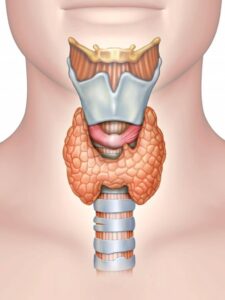How To Balance Doshas And Treat Various Thyroid Problems?


The pioneer of Poly Scientific Ayurveda discusses approaches to reversing autoimmune thyroid conditions like Hashimoto’s and Graves’ Disease with natural methods.
According to the National Family Health Survey IV, thyroid disorders are significantly higher among women in India, particularly those in the highest wealth quintile. They have a three to four-fold higher risk compared to those at the lower end. Among individuals aged between 15 and 49 years, nearly two percent of women and less than one percent of men self-reported thyroid disorders or goiter. Furthermore, the incidence in women rises with age, from 0.7 percent in those aged 15-19 to 3.4 percent in the 35-49 age group.
Common Thyroid-related diseases in India include Hypothyroidism, a condition that arises when the thyroid gland produces insufficient hormones. It is the most prevalent type in India. Then there is Goitre- the enlargement of the thyroid gland, Graves’ Disease, characterized by excessive production of T3 and T4 hormones, Hashimoto’s Thyroiditis and grave conditions like Thyroid cancer.
Medical experts believe that, in India, the burden is significant due to factors such as iodine deficiency, genetic predisposition, environmental influences, and lifestyle changes.
“Thyroid diseases are primarily categorized into hypothyroidism, which is the underproduction of thyroid hormones, and hyperthyroidism due to overproduction of thyroid hormones. Treatment generally involves hormone supplementation for hypothyroidism and medication or surgery for hyperthyroidism. Proper diagnosis and treatment are crucial for managing thyroid disorders and improving patient outcomes. However, rather than relying solely on allopathic treatments alone, this condition can be improved through lifestyle modifications based on traditional medicines such as Ayurveda,” said Dr Ravishankar Polisetty, the pioneer of Poly Scientific Ayurveda (PSA).
As per Ayurvedic principles, any imbalance of the three Doshas- Vata, Pitta, and Kapha- will lead to ill health and diseases. “Hypothyroidism is commonly associated with Kapha imbalance, as this Dosha governs structure, stability, and lubrication in the body. Its sluggish nature (Manda) leads to a slow thyroid function, resulting in fatigue, cold intolerance, and weight gain. Hyperthyroidism, on the other hand, is linked to Pitta aggravation (Pitta Prakopa). Pitta’s fiery nature will increase metabolic activity, leading to the overproduction of thyroid hormones and rapid metabolism. Its symptoms include excessive heat, faster heart rate, and anxiety,” added Dr Polisetty.
Ayurvedic methods always aim to balance the specific Doshas involved in thyroid disorders.
“The primary aim of the Ayurvedic practitioner is to assess whether the issue is due to Kapha or Pitta imbalance. The treatment for hypothyroidism focuses on pacifying Kapha through Kapha-reducing herbs like Trikatu, Ashwagandha, and Gugulu. For hyperthyroidism, cooling herbs like Shatavari and Brahmi are recommended alongside a Pitta-pacifying diet mainly consisting of cooling foods to reduce its intensity,” said Dr Polisetty.
